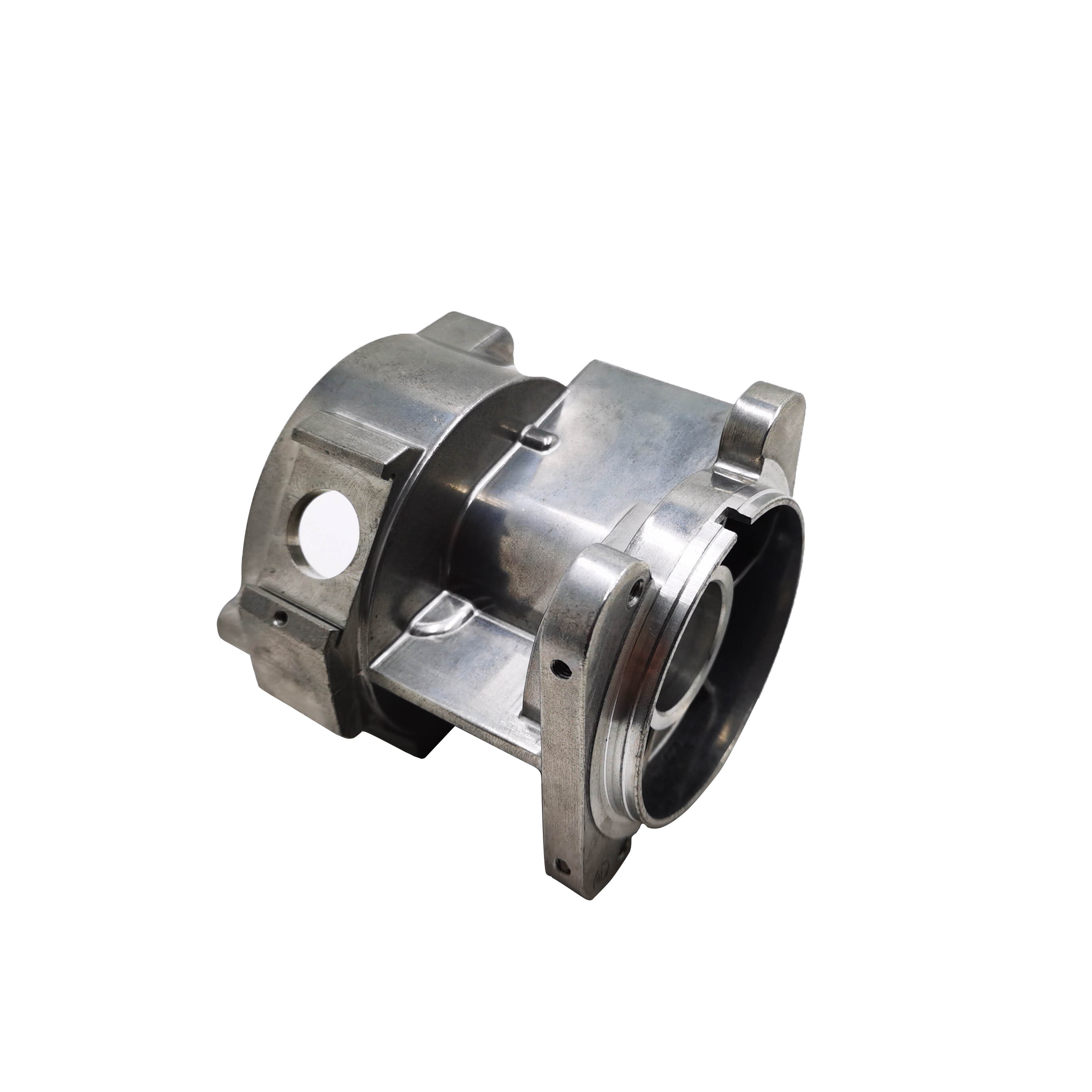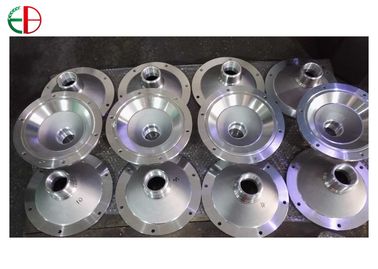Just How Light Weight Aluminum Foundries Add To Different Industries: A Comprehensive Summary
Aluminum factories work as essential distributors throughout multiple markets, consisting of automotive, aerospace, construction, and electronic devices. They produce elements that are not only light-weight but additionally durable, improving the performance of numerous products. With innovative spreading strategies and a commitment to sustainability, these factories are adapting to satisfy progressing sector needs. As they introduce, the influence of aluminum spreadings on various applications elevates vital concerns regarding the future of production. What lies ahead for this essential sector?
The Role of Aluminum Foundries in the Automotive Industry
As the vehicle sector significantly embraces lightweight materials to improve gas performance and performance, light weight aluminum shops play a vital function in this development. These facilities focus on the manufacturing of light weight aluminum spreadings, which are important components in contemporary automobiles. By providing high-strength, lightweight components, aluminum foundries make it possible for producers to decrease the total weight of vehicles, ultimately resulting in improved fuel economic climate and lowered exhausts.
Aluminum's resistance to rust additionally boosts automobile long life, making it an appealing option for car manufacturers. Foundries use sophisticated strategies such as die spreading and sand spreading to produce exact and detailed elements, making sure that they satisfy stringent industry criteria. In addition, the capability to recycle light weight aluminum successfully adds to a more sustainable production process. As the automotive field remains to introduce, light weight aluminum factories will continue to be essential in delivering the materials necessary for the future generation of vehicles, sustaining both performance and ecological goals.

Aerospace Applications of Aluminum Castings
Aluminum spreadings are integral to the aerospace sector, using a mix of lightweight strength and resilience that is vital for aircraft efficiency. These spreadings are utilized in various elements, such as engine components, architectural frames, and landing gear, where weight reduction is essential for fuel performance and total safety and security. The adaptability of aluminum enables complex geometries that improve aerodynamic effectiveness while maintaining structural integrity.
Improvements in casting modern technologies have boosted the accuracy and surface finish of aluminum elements, lowering the need for comprehensive post-processing. This performance not only accelerates manufacturing timelines but additionally lowers expenses, making light weight aluminum an attractive choice for producers. The rust resistance of aluminum guarantees longevity and dependability in harsh operating atmospheres, even more establishing its duty in aerospace applications. As the sector progresses, light weight aluminum spreadings proceed to be a vital product, driving development and supporting the advancement of next-generation aircraft.
Construction Sector Technologies With Light Weight Aluminum
The building industry has actually progressively embraced light weight aluminum because of its lightweight homes and adaptability, paralleling its effective applications in aerospace. Developments in aluminum layout have led to stronger, much more efficient frameworks, allowing home builders and architects to explore brand-new possibilities. The material's resistance to rust and low upkeep requires make it particularly appealing for both business and domestic tasks.
Light weight aluminum's versatility assists in the production of elaborate layouts, permitting aesthetic enhancements that were previously challenging with typical products. Prefabrication methods have actually also developed, making use of light weight aluminum to minimize construction time and costs significantly. In addition, the power efficiency of aluminum systems-- such as home window structures and roof covering-- adds to lasting building techniques, straightening with contemporary ecological requirements. As the building and construction sector remains to accept these innovations, light weight aluminum's duty is anticipated to increase, driving more advancement and adding to the development of resilient facilities.
Electronic devices and the Need for Lightweight Light Weight Aluminum Components
With the quick advancement of innovation, the need for light-weight light weight aluminum parts in the electronic devices market has surged. As devices end up being extra portable and portable, producers seek materials that supply both resilience and weight reduction. Light weight aluminum, with its exceptional strength-to-weight ratio, has actually emerged as a preferred selection for elements such as housings, heat sinks, and structural assistances.
Using light weight aluminum not only improves product performance yet additionally adds to energy performance, as lighter gadgets call for much less power during procedure. Furthermore, aluminum's outstanding conductivity makes it suitable for electronic applications, ensuring reliable warm dissipation and reducing the risk of getting too hot.
As customer preferences change towards light-weight and smooth gizmos, light weight aluminum shops play a crucial duty in fulfilling the developing needs of the electronics industry (aluminum casting). Their capability to create top quality and accurate aluminum components supports advancement, making it possible for makers to press the limits of style and performance
Sustainable Practices in Aluminum Foundries
As the electronics market have a peek at this site increasingly focuses on sustainability, light weight aluminum foundries are adjusting their techniques to align with these environmental objectives. Several shops are applying reusing programs that redeem light weight aluminum scrap, greatly reducing the demand for raw products and reducing waste. By using energy-efficient technologies, these facilities are reducing their carbon footprint; for circumstances, using electrical heaters rather of traditional gas-fired ones can result in considerable energy cost savings.
In addition, aluminum foundries are buying water preservation measures, such as closed-loop systems that recycle water used in cooling down procedures. These methods not just reduced water usage yet additionally minimize the ecological influence related to wastewater discharge. Furthermore, several foundries are exploring renewable resource resources, such as solar and wind power, to fulfill their power requires sustainably. With these initiatives, aluminum factories exhibit a dedication to ecological stewardship while proceeding to satisfy the demands of the electronic devices sector.
Future Fads in Aluminum Factory Technologies
Arising innovations are poised to transform aluminum shops, improving efficiency and item high quality while progressing sustainability initiatives. Developments such as expert system and artificial intelligence are expected to optimize production procedures by forecasting equipment failures and enhancing source allowance. The integration of innovative robotics will certainly simplify procedures, decreasing labor expenses and lessening human mistake.
Additive manufacturing, or 3D printing, is additionally acquiring traction, making it possible for the manufacturing of complicated geometries that were previously unattainable with traditional methods. This change could lead to significant material savings and minimized waste. Additionally, clever factories using IoT (Web of Things) innovations will certainly enable real-time surveillance and data evaluation, cultivating proactive decision-making.
The adoption of cleaner melting innovations and reusing methods will certainly additionally decrease the ecological impact of light weight aluminum shops, making them extra sustainable. Jointly, these fads signal a future where light weight aluminum shops can operate with higher performance and duty.
Regularly Asked Questions
What Are the Environmental Effects of Light Weight Aluminum Foundries?

Just How Do Foundries Guarantee Quality Assurance in Light Weight Aluminum Casting?
Factories assure quality assurance in light weight aluminum spreading by executing strenuous examination processes, utilizing sophisticated innovation, conducting regular product testing, and sticking to market requirements, thus keeping uniformity and dependability in their finished items. Aluminum Casting Company.
What Is the Typical Life-span of Aluminum Cast Parts?
The typical life expectancy of light weight aluminum cast parts commonly ranges from 10 to half a century, depending on link aspects such as ecological conditions, use, and upkeep. Correct treatment can significantly improve their sturdiness and efficiency with time.
Just How Are Light Weight Aluminum Alloys Selected for Details Applications?
Light weight aluminum alloys are picked based on aspects such as stamina, rust resistance, weight, and thermal conductivity. Designers evaluate the details requirements of applications to identify one of the most suitable alloy for ideal performance and resilience.
What Are the Safety Laws for Aluminum Shop Workers?
Security regulations for light weight aluminum factory workers include individual protective equipment look what i found requireds, ventilation demands, exposure limitations to dangerous products, and protocols for taking care of molten metal. Conformity warranties worker security and lessens wellness dangers related to shop operations.
As the auto industry increasingly accepts lightweight materials to enhance fuel efficiency and performance, aluminum foundries play an essential function in this evolution. As customer preferences change towards sleek and light-weight devices, aluminum shops play an important role in fulfilling the evolving needs of the electronic devices market. As the electronics sector progressively prioritizes sustainability, aluminum factories are adjusting their methods to align with these ecological objectives. Numerous foundries are applying reusing programs that recover aluminum scrap, significantly lowering the need for raw products and minimizing waste. Security regulations for aluminum shop employees include individual protective tools mandates, air flow needs, direct exposure restrictions to unsafe products, and procedures for managing liquified steel.